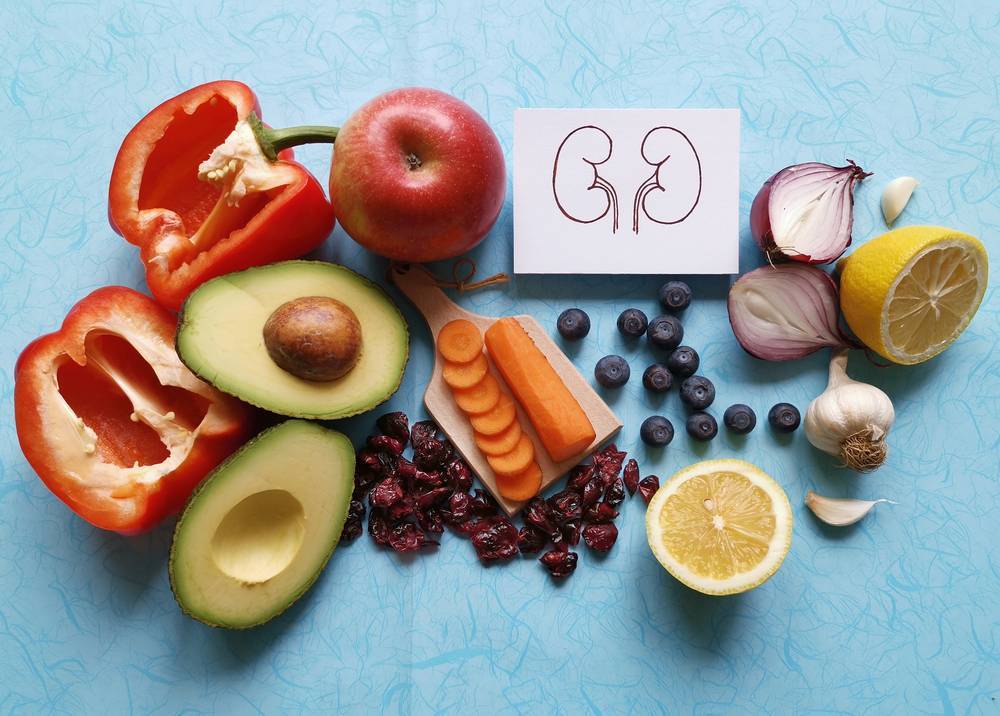Chronic kidney disease is often caused by high blood pressure, diabetes or polycystic growth, resulting in compromised renal function. A modified diet could help prevent kidneys from further damage and limit certain toxins building up in the body.
Dr Elizabeth Roasa is a board-certified nephrologist from Manila, Philippines. She is a professor and the chairperson of the Department of Physiology at the University of Santo Tomas. In this article, Dr Elizabeth brings us seven dietary tips for patients with Chronic Kidney Disease.
The pair of kidneys are vital organs in our body, about the size of an adult fist, located in our lower back. They are commonly known for their excretory function – filtering 200 litres of blood daily to produce around 2 litres of urine. The kidneys are important organs in maintaining the human body’s blood pressure, electrolyte balance and calcium level.
Read on to learn dietary tips for patients with kidney disease.
Sodium
Sodium is primarily found in dietary salt as sodium chloride, an important element in regulating our blood pressure, muscle function and acid-base balance. Too much sodium in the diet can result in water retention leading to high blood pressure, thus further damaging our kidneys. Asian diets, whether Chinese, Japanese, or Korean, are generally high in sodium salt.
Protein
We need to be mindful of our protein consumption. We want to eat enough amount because that’s the most important building block for our body, and our body muscles are predominantly made of proteins. Consuming the right amount of protein at the right time is extremely important. Animal meat and dietary products are the primary sources of protein in our diet.
Potassium
A large amount of potassium is found in certain fruits and vegetables, such as avocado, banana, melons, citrus fruit, potatoes, cassava, nuts, spinach, etc. Take special care with the amount of juice you drink. For example, a glass of pure orange juice could be made up of three oranges, which contain a lot of potassium! Other food including milk, yoghurt, dried beans, peas, and salt substitutes will also contain some amount of potassium.
Why do we want to limit the amount of potassium intake though? Most patients with kidney failure will have difficulty removing excess potassium from the body. Excess potassium can harm the function and physiology of our muscles, including heart muscles. One of the leading causes of irregular heart rhythm (arrhythmia) is disturbances in our blood potassium levels.
Phosphorus
Phosphorus is another element commonly seen in many of the food we take in. Excess phosphorus will need to be removed by the kidneys. When kidney function is impaired, phosphorus accumulates in our body and stimulates parathyroid hormone, which stimulates the kidneys to eliminate the excess amount of phosphorus. However, kidneys still cannot eliminate the excessive amount of phosphorus because of the intrinsic loss of function. The release of parathyroid hormone breaks down our bones and further cause a rise in calcium levels. Blood vessels, along with other soft tissues tend to become stiffened when there’s excessive phosphorus and calcium in the blood. Blood vessel calcification is a leading cause of cardiovascular deaths worldwide.
Calcium
Calcium is important in regulating heartbeat, muscle tone, and maintaining bone density. We need the right amount of calcium in our diet to maintain basic functions and avoid kidney damage. Many foods rich in calcium like dietary products, and eggs are also rich in protein, which need to be closely monitored as well.
Fluids
We all need enough fluids to live. However, when you develop kidney failure, it loses most of its ability to regulate your body fluid level. Water can build up in our systems, including our lungs, which reduces the amount of oxygen we breathe in. Fluid balance is one of the trickiest parts of diet planning for kidney failure patients.
Calories
Calories and nutrients give us the energy to live. If we do not have enough energy intake, the body will break down fats and muscles to maintain basic metabolism, which results in waste in our body. Many chronic kidney diseases patient become underweight as a result.
Conclusion
As Dr Elizabeth said, when we talk about diet, it will vary from person to person. Each person will have the right amount of nutrients and electrolytes to take in, depending on the body weight and height. We encourage patients based on lifestyle to have moderate physical activity. Brisk walking 30-40 min every day, 4-5 times a week, is the ideal amount of physical activity for an average adult. Though prescription medications from doctors do help to alleviate the progression of the disease, lifestyle modifications are still the key.

